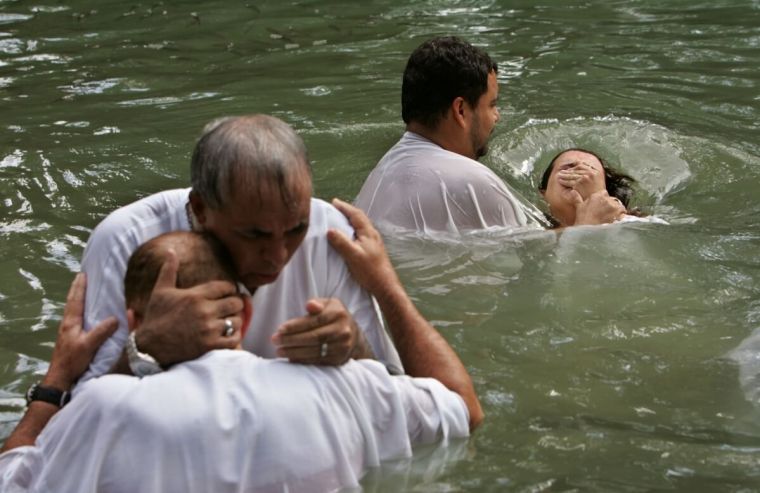If Jesus was sinless, why was he baptised?
Jesus' ministry begins when he is baptised by John. The story is told in Matthew 3:13-17 and in Luke 3: 21-22.
But why was Jesus baptised? Traditionally churches regard it as a sign of the washing away of sins, in line with Acts 22:16, where Ananias says to Paul: 'Get up, be baptised and wash away your sins.' In churches that practise believer baptism the symbolism is particularly powerful: the candidate goes down into the water and is fully immersed in a vivid testimony of faith.

But John's baptism was a baptism of repentance, as Paul says in Acts 19:4 – so why did Jesus, who was sinless and had nothing of which to repent, believe it was necessary to be baptised?
There is a hint of the question, at least, in Matthew's account, which says: 'But John tried to deter him, saying, "I need to be baptised by you, and do you come to me?" Jesus replied, "Let it be so now; it is proper for us to do this to fulfil all righteousness." Then John consented.'
The answer, though, is still not very clear. What does 'fulfil all righteousness' mean?
There are probably two answers. The first is that baptism is not just a personal testimony, as many evangelical churches tend to stress. It marks the moment someone becomes part of a new community, the Church. We are baptised into the fellowship of believers. In its fullest sense that cannot happen without faith. So when Jesus was baptised, he was inaugurating that new community and inviting others to follow in his footsteps.
But second is a less theological reason. Aside from baptism 'means', there is what, to an adult believer, it feels like. It is a profoundly solemn moment of commitment. It is a new beginning. It is a moment to receive grace and strength for a journey into the unknown. It is undertaken before a community of praying believers.
Jesus was beginning a ministry that would take him to the cross and resurrection. He was to tell his disciples that they would have to take up their own crosses, too. Everything follows from this moment.
Christians ought to be baptised because Jesus commands it. But it is also a time for believers to be challenged about the lifetime of discipleship that lies before them and to lay hold of Jesus' promise to be with us always.
When Martin Luther, the great Reformer, was in great spiritual turmoil and believed he was under demonic attack, he would shout: 'I am baptised!'
And for those whose baptism took place years ago – perhaps in infancy – it's a reference point that assures us that we are always held in God's hands.











